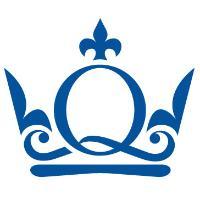LINKS (London Intercollegiate Network for Comparative Studies) 2015-16 Programme Announced
LINKS is a collaboration between London institutions involved in teaching and research in comparative literary studies, to promote dialogue and cooperation.

LINKS is a collaboration between London institutions involved in teaching and research in comparative literary studies, to promote dialogue and cooperation. Participating institutions include Birkbeck, King’s, Goldsmiths, Queen Mary, Royal Holloway and SOAS and UCL.
20 October 2015, 18.00-20.00 in Room 243, Senate House (second floor)
Outrage: Offensive and Offended Sentiments, from Libertinage and Colonial Calcutta to 21st-century France
Dr David Lunn SOAS (chair); Dr Will McMorran, Queen Mary; Dr Carole Sweeney, Goldsmiths.
What makes for an outrageous work of literature? ‘Taste’, as constituted and reproduced in communities of consumers is at once a normative and fluid concept, constantly redefined and disputed in a dynamic process involving readers, writers, critics, and censors, official and otherwise. Importantly, such debates are rarely about the literary work alone, impacting as they do on modes of being, speech etiquette, desire and decency to name but a few. This seminar will consider questions of outrage, offended sentiments, and the censorious impulse around three foci: eighteenth-century libertine le Marquis de Sade (McMorran); France’s foremost contemporary literary provocateur Michel Houellebecq (Sweeney); and the long colonial context for India’s recent bouts of censorship (Lunn). By bringing such apparently disparate texts and contexts into conversation with one another, we hope to shed some light on the different ways in which outrage has functioned to both push and set the bounds of literary creativity.
17 November 2015, 18.00-20.00 in Room 243, Senate House (second floor)
Creating Creative Criticism with Stephen Benson and Clare Connors
Dr Clare Connors and Dr Stephen Benson, University of East Anglia
Literature students learn early on that the ‘content’ of a work cannot be considered apart from its ‘form’, and that any literary criticism worth its salt must consider the interrelation between the two. And yet too frequently, critics operate as though the form of their own writing were negligible, insignificant or transparent. In this talk we discuss a number of works – which we’ve gathered together in our anthology Creative Criticism (EUP, 2014) http://www.euppublishing.com/book/9780748674336 – whose very form participates in the critical thinking they also undertake. We’ll talk about the conversations and considerations that went into making the anthology, and also say something about the MA module we teach in relation to it. We hope that the ensuing discussion will permit us all to think more about the particular formal possibilities and exigencies of comparative critical work.
1 December 2015, 18.00-20.00 in Room 243, Senate House (second floor)
Getting Other Voices Heard: Literary Translations and Publishing Challenges
Ellen Jones, Criticism Editor, Asymptote and PhD Candidate, Queen Mary
The online journal Asymptote celebrates the central role of translation in world literature, and encourages critical reading by providing multiple versions of a work: original, translation(s), and even sound recording and illustration. Only just over 4% of all published literature in the UK is in translation, and Asymptote’s Criticism Editor will discuss the challenges involved in trying to increase that percentage. She will explore alternative models such as “virtual” editorial teams and advance subscription models, and will highlight the particular the difficulties of disseminating writing in less commonly translated languages. As more mixed-language writing emerges from a globalised world where sociolinguistic diversity is the norm, so the need for collaborative translation practices increases, as exemplified by the July 2015 Asymptote special feature on multilingual writing. As well as to discuss these important issues, there will be an opportunity to learn how to get involved with the journal.
19 January 2016 , 18.00-20.00 in Room 234, Senate House (second floor)
Panel on World Literature
Francesca Orsini (SOAS), Professor of Hindi and South Asian Literature
16 February 2016, 18.00-20.00 in Room 243, Senate House (second floor)
‘Nautical Language: Conrad’s Flying Moors and Crimson Barometers’
Robert Hampson, Professor of Modern Literature, Royal Holloway
Nautical language entered English prose writing with the early accounts of voyages of exploration. This paper explores Conrad’s handling of nautical language in such works as The Nigger of the ‘Narcissus’, Lord Jim, ‘Typhoon’ and ‘The End of the Tether’. It will explore Conrad’s negotiation of precision and clarity in the use of technical language – and the kind of contract he establishes with his readers. It will consider also the response of contemporary reviewers to this aspect of his fiction. The paper also considers another aspect of nautical language: the swearing that was part of shipboard life. This raises problems of verisimilitude, censorship and reader reaction. Conrad had to tone down the language in The Nigger of the ‘Narcissus’ for book publication – and still met with negative reviews. The paper also looks at the inventive solutions he found in other fictions.
1 March 2016, 18.00-20.00 in Room 234, Senate House (second floor)
César Dominguez, Professor of Comparative Literature and Jean Monet Chair of European Integration, University of Santiago de Compostela
June 2016
LINKS (London Intercollegiate Network for Comparative Studies) Postgraduate Conference
Hosts: Birkbeck and Royal Holloway
LINKS conferences foster a space to discuss and re-think intercultural ‘links’, and to approach literary and non-literary texts from a comparative perspective. Organised by postgraduates for postgraduates, this one-day conference is an opportunity for postgraduate students across the University of London network and beyond to present individual research papers, generate and engage in critical discussions, and meet with other students, professors, and researchers in the field.